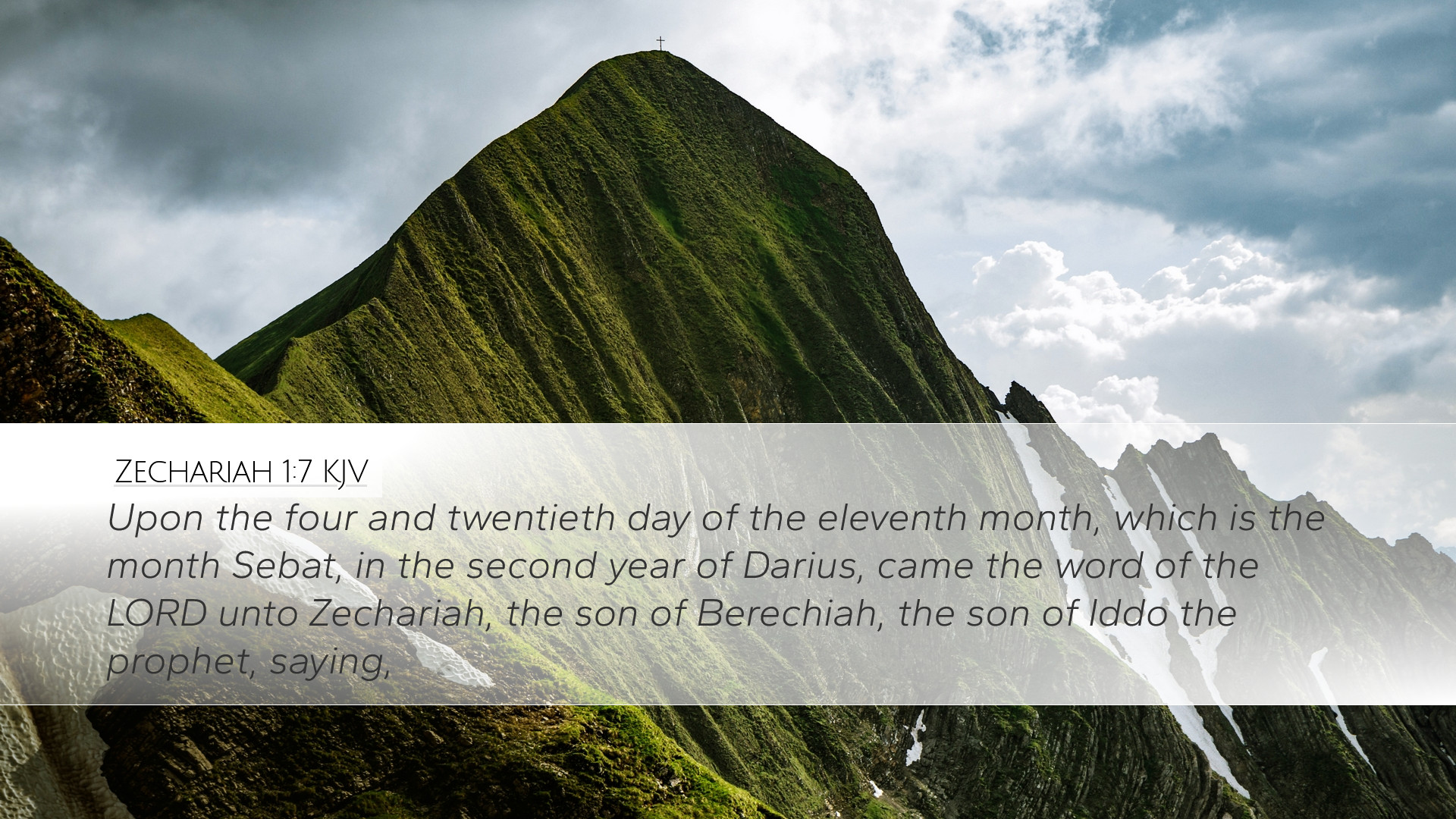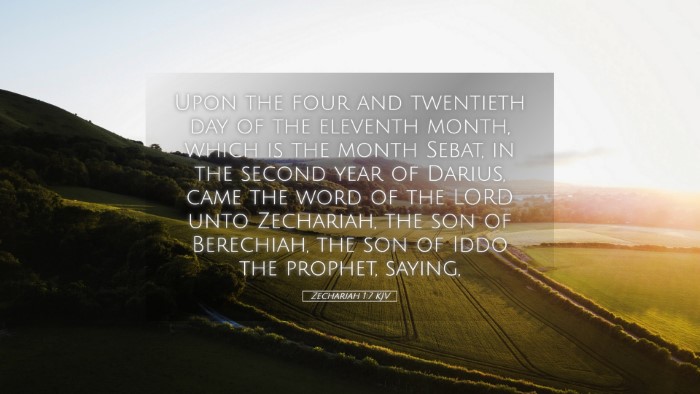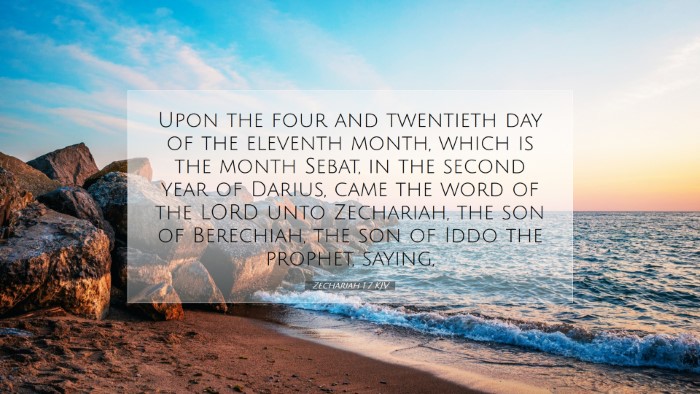Commentary on Zechariah 1:7
Verse Context: Zechariah, a prophet during the post-exilic period, received visions from God to encourage the people of Israel as they returned to rebuild Jerusalem and the Temple. Understanding the cultural and historical backdrop is crucial for interpreting this verse.
Text of Zechariah 1:7
“Upon the four and twentieth day of the eleventh month, which is the month Sebat, in the second year of Darius, came the word of the Lord unto Zechariah, the son of Berechiah, the son of Iddo the prophet, saying,”
Historical Background
The mention of Darius allows us to anchor this message within a specific timeframe during the Persian Empire's dominance. Darius I, reigning from 522 to 486 BC, was known for his administrative skill, which facilitated the return of exiles from Babylon and the reconstruction of their homeland. Understanding this timeline helps one grasp the significance of Zechariah's prophecies for the returning exiles.
Commentary Insights
Matthew Henry's Commentary
Matthew Henry emphasizes the important timing of Zechariah's prophetic revelation. The specific date noted in this verse establishes a clear context for God's communication and assures His people that He is actively involved in their situation. Henry suggests that each prophetic message holds divine wisdom and should be considered carefully, as it reflects God's ongoing relationship with His people.
Albert Barnes' Notes
In his analysis, Albert Barnes highlights the significance of the month Sebat, which corresponds to January-February on the modern calendar. This timing is critical as it follows the Jewish month of Shevat, often associated with reflection and preparation. Barnes notes that God's word comes at a time when the people needed assurance and encouragement, reminding them of God's commitment to their restoration.
Adam Clarke's Commentary
Adam Clarke provides a comprehensive overview, noting the genealogy of Zechariah which establishes him as a prophet within a rich lineage. Zechariah is presented as a bridge between the prophetic tradition and the restoration efforts in Jerusalem. Clarke insists on the importance of prophetic voices during times of spiritual and physical rebuilding, stating that such leaders are necessary for guiding the people back to covenant faithfulness.
Theological Implications
This verse holds profound theological significance as it underscores God's initiative to communicate with His people during pivotal moments. It highlights the continuity of God's covenant and His faithfulness, ensuring that despite past exile, restoration and hope remain possible. The prophet’s role is crucial; he serves not only as a messenger but also as a reminder of God's enduring promises.
Applications for Today's Pastors and Theologians
- Affirmation of Prophetic Voice: Pastors today can draw parallels from Zechariah's role. In tumultuous times, the church needs prophetic voices that can articulate God's word with clarity and power.
- Encouragement during Rebuilding: Just as the Israelites received encouragement in the face of adversity, contemporary leaders can inspire their congregations through difficult seasons by reinforcing God's promises of restoration.
- Timeliness of God's Word: This verse serves as a reminder of the importance of waiting on God’s timing in our ministries. Importantly, the divine message often arrives at crucial junctures, guiding decisions and direction.
- Historical Contextualization: Scholars and theologians should continually explore the historical context of biblical texts, as this deepens our understanding of the text and its application across time.
Conclusion
Overall, Zechariah 1:7 is rich with meaning and relevance for faith communities. It reflects a pivotal moment of divine communication facilitating the restoration of God's people. As pastors, students, and scholars explore these themes, they should recognize their application today in nurturing hope and encouraging faithfulness amidst challenges.


